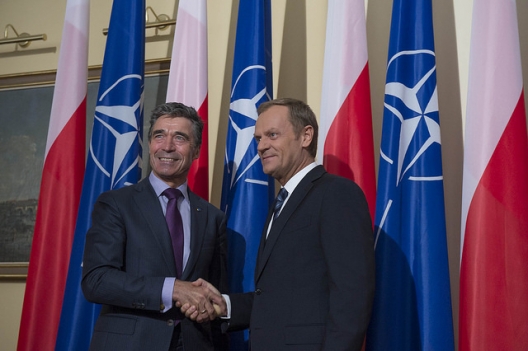 Poland approaches the NATO September 4 summit intent on decisions that will strengthen the Alliance’s capability for collective defense. Russia’s invasion of Ukraine has added urgency to this focus, validating Poland’s longstanding, but too long dismissed, concerns about President Vladimir Putin’s revanchist ambitions and build-up of the Russian military. Poland will assess the NATO summit with an eye on the Alliance’s determination to reinforce its Eastern frontiers and to deter further Russian aggression and the vigor of the commitment of the United States to the Alliance.
Poland approaches the NATO September 4 summit intent on decisions that will strengthen the Alliance’s capability for collective defense. Russia’s invasion of Ukraine has added urgency to this focus, validating Poland’s longstanding, but too long dismissed, concerns about President Vladimir Putin’s revanchist ambitions and build-up of the Russian military. Poland will assess the NATO summit with an eye on the Alliance’s determination to reinforce its Eastern frontiers and to deter further Russian aggression and the vigor of the commitment of the United States to the Alliance.
Poland is working closely with a core group of allies pressing for more realistic contingency planning regarding North Central Europe, larger and more demanding Alliance exercises, reform and modernization of the Alliance’s command structure, upgrades to the NATO response force that will enhance its responsiveness, and other steps that would enable the Alliance to more rapidly mobilize and defend against aggression from the East. Poland has also been working with the United States to reanimate the Alliance’s longstanding goal that all members have defense budgets equal to 2% or more of their respective national GDPs.
Warsaw’s credibility is strong on this front. It is in the midst of a $40 billion investment plan that will bring its armed forces new kit over the course of this decade, including new helicopters, fighting vehicles, naval assets and air and missile defense capacities. Polish President Bronislaw Komorowki recently announced that Poland’s defense budget, which by law matches 1.95% of its GDP, will be increased to 2% of GDP.
The NATO summit will occur in the midst of a revitalization of US-Polish security relations. In 2012, Warsaw was stunned by President Barack Obama’s “pivot to Asia” and decision to withdraw significant combat capability from Europe. Many in Warsaw concluded that Poland’s national security priorities were best served through its relationships in Europe, particularly with Germany and France.
Putin’s invasion of Ukraine changed all that. While one may question the speed and robustness of the U.S. response to that act of aggression, Washington was the first ally to deploy air and then ground forces to Poland, a sharp contrast to the hesitancy of West European allies.
The value of US-Polish relations was further underscored during President Obama’s June 2 visit to Warsaw. There, he rolled out the U.S. European Reassurance Initiative (ERI), a billion dollar promise to reinforce European allies and to build the military capacities of Ukraine, Georgia and Moldova. President Obama and Polish President Komorowski also used the occasion to also launch a new phase in US-Polish security cooperation, the Solidarity and Partnership Initiative (SPI) which promises new collaboration in special operations, air and missile defense, air operations, cyber, and other realms.
Warsaw has long been calling for a United States military base on its territory. Polish Foreign Minister Radek Sikorkski has repeatedly noted that the U.S. has bases in Spain, Germany, Italy and Turkey where there is no immediate threat, but none in Central Europe which now clearly faces the most immediate threat.
The ERI and SPI have whetted Polish expectations that some form of enhanced and enduring U.S. military presence will be forthcoming, if not an operational combat capability, then prepositioned assets that would enhance readiness and facilitate bilateral training and engagement. And, Warsaw hopes that an updating of the Alliance’s command structure will yield a new NATO headquarters and/or reception facility dedicated to the defense of Central Europe, also based in Poland.
These Polish objectives are legitimate and warranted. They deserve Washington’s support. Today, two months after their roll-out, the SPI and the ERI still lack definition, creating a risk that they become viewed as empty promises. Deploying both enduring and strategically significant U.S. and NATO military capabilities in Poland would help operationalize these important initiatives and would be a sound and justifiable use of resources to shore up the Alliance’s eastern frontiers.
Ian Brzezinski is a resident senior fellow with the Brent Scowcroft Center on International Security and a former deputy assistant secretary of defense for Europe and NATO policy.
Image: Secretary General Anders Fogh Rasmussen and Polish Prime Minister Donald Tusk, May 8, 2014 (photo: NATO)
